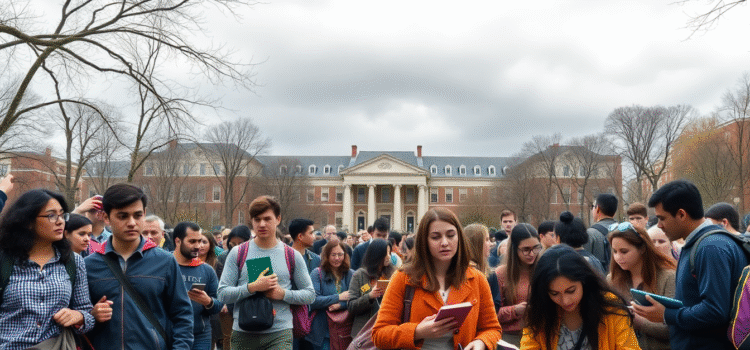
Trump Immigration Policy’s Impact Threatens Harvard’s Foreign Students and U.S. Education Appeal
Introduction
The Trump administration’s policies on immigration and visa regulations have generated significant concern among educational institutions across the United States. With particular emphasis on Harvard University, where approximately 6,800 foreign students are enrolled, these policy shifts pose a formidable challenge to the university’s ability to sustain its international appeal and cultural diversity. International students in the U.S. were a significant economic contributor, injecting nearly $45 billion into the economy in 2018 and supporting over 450,000 jobs. As Harvard faces the potential loss of its international student body, the economic and cultural vibrancy of U.S. higher education is at stake.
The Impact of Trump Administration’s Policies on Harvard International Students
The Trump immigration policy has stirred anxiety among foreign students at Harvard. Visa restrictions and uncertain policy shifts threaten these students’ enrollment status, directly impacting university revenue and the student experience. Harvard, renowned for its diverse and inclusive educational environment, may witness a significant shift if policy changes persist.
Policy shifts threaten the enrollment status of international students at Harvard University.
Economic and Cultural Repercussions of Education Appeal Decline
The decline in international student enrollment threatens U.S. universities not only economically but culturally. Foreign students contribute to the academic diversity and global perspective fundamental to American education’s strength. A reduced international presence could curtail academic exchange and collaboration, adversely affecting the United States’ position in global academia.
- In 2018, international students contributed nearly $45 billion to the U.S. economy.
- The educational sector supported over 450,000 American jobs, emphasizing the sector’s economic importance.
- Harvard’s foreign students contribute to a dynamic academic and cultural community.
How Trump’s Policies May Affect U.S. Competitiveness in Education
With stringent visa regulations under the Trump administration, the appeal of U.S. higher education could decline. Aspirants might turn towards other educational hubs with welcoming policies, affecting U.S. universities’ ability to attract top talent. If the international student population diminishes, the country’s competitive edge in research and innovation may be compromised.
To understand more about the current immigration policies, refer to the article on CNN.
Conclusion
The impact of Trump’s immigration policies extends beyond Harvard’s foreign students, affecting the broader U.S. higher education landscape. By threatening revenue streams and cultural diversity, these policy shifts risk U.S. universities’ standing on the global stage. Readers are encouraged to share their thoughts and reactions in the comments below.
Sources
The information in this blog post has been compiled and verified from the following sources:
FAQ
What is the impact of Trump’s immigration policy on Harvard? The policy potentially affects around 6,800 foreign students at Harvard, threatening enrollment statuses and revenue.
How does the U.S. international student policy under Trump affect higher education? It poses risks to U.S. universities’ ability to attract and retain international talent, affecting cultural diversity and economic contributions.
What are the consequences of Trump policies for foreign students? Stringent visa regulations could lead to decreased enrollments, affecting students’ academic plans and universities’ operational dynamics.
How should U.S. universities respond to these challenges? Institutions may need to reassess their international recruitment strategies and bolster support systems for affected students.








Comments